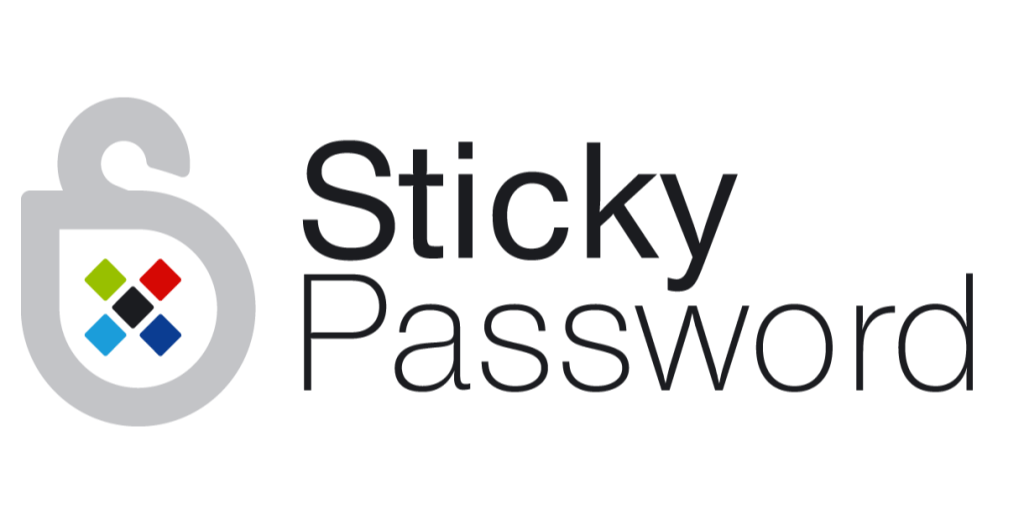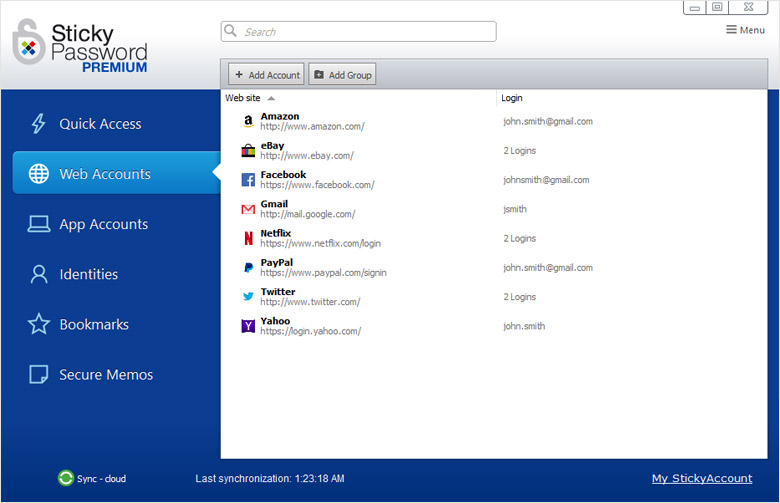
Lamantine Software
Applications
Sticky Password – Password Management Software
FORMATOS UTILIZADOS
 Delphi
Delphi
DESAFÍOS
Sticky Password is no newcomer to the password management space. Given the unique challenge of defining niche software to fulfill the rapidly emerging need for secure password management, Lamantine wanted the flexibility to react as technology, the market, and the way users accessed the internet and their software systems evolved.
RESULTADOS
Tischenko and his team considered several IDEs but each had its limitations. In the end, they opted for Delphi. Delphi allowed us to build and change the user interface easily and quickly react to user feedback. I had already used Delphi on other projects, so I was familiar with its flexibility and advantages.
First developed by Lamantine Software in 2001, Sticky Password is an award-winning password manager that provides secure, multi-device and multi-platform password management services. With a rich feature set, Sticky Password offers a full set of access and security functions — everything from automatic login and forms population to data sync between devices, secure credit card management, and military-grade data protection and password generation.
In addition to its broad feature set, Sticky Password is among the first truly localized password management solutions — from the outset it shipped in English, German, French, Dutch, Czech, Russian, Ukrainian, Japanese, Spanish, Brazilian Portuguese, and Polish.

DESAFÍOS
Finding a Flexible IDE That Keeps Pace With Ever-Evolving Requirements
Sticky Password is no newcomer to the password management space.
I started 20 years ago, it was a novel application — there really wasn’t a broad view of what password management really was — so we didn't have a clear vision of how our software should look or even what our users would need
Aleksandr Tischenko, Founder and CEO of Lamantine Software
Given the unique challenge of defining niche software to fulfill the rapidly emerging need for secure password management, Lamantine wanted the flexibility to react as technology, the market, and the way users accessed the internet and their software systems evolved.
The Delphi Solution
Tischenko and his team considered several IDEs but each had its limitations. In the end, they opted for Delphi. “Compared to Visual Studio, Delphi is a modern tool for adaptive Rapid Application Development (RAD) with high-speed compilation. Visual Basic would have allowed us to quickly build the user interface, however it was too limited in its language features,” Tischenko says. “Delphi allowed us to build and change the user interface easily and quickly react to user feedback. I had already used Delphi on other projects, so I was familiar with its flexibility and advantages.”
Seeing Results With Delphi
Meeting customer requirements with a single code base
“Using Delphi, we developed a native Windows application with a contemporary user interface and the ability to fill passwords in other applications using public and hidden Windows APIs,” says Tischenko. Lamantine’s team of six developers started with Delphi’s RAD approach for UI design but soon shifted to breaking the UI down into individual components managed with special logic.
“Delphi gives us a quick and easy way to create our user interface and adapt it to user requirements,'' says Tischenko. “It’s a powerful language that allows us to use OOP (object-oriented programming) to make our single code base flexible enough to support multiple requirements from our different partners and white label projects.”
Rapid development for Windows or Mac OS
The Delphi toolset also gave the team greater flexibility. “As we started expanding to other platforms, we had to implement some core parts of the application in C++ (Visual Studio) and to integrate them with Delphi code. It worked great,” Tischenko states. “For a special partner project, we also built our existing Delphi code for Mac OS in just two weeks without any issues.”
Reduced development and deployment cycles
Using a RAD approach, Lamantine were also able to reduce their development and deployment cycles thanks to third-party components, OOP support, and the quick native code compiler, “Even if we missed the API declarations for new Windows features in the RTL, we could import and use them without any problems”, says Tischenko. “We could also inject our Delphi code into other applications to rapidly provide unique functionality like our Sticky Button features and automated UI.”
Compiling at speed
Using Delphi command-line tools, Lamantine also saves time with automated builds. “From Git, our make script compiles all of our components and application modules, creates and code-signs the installer, and uploads it to FTP,” Tishenko explains. “To create a new development environment we simply check out the code repository, install Delphi, and run the make script.”
For development and debugging, the Lamartine team can compile Sticky Pass — which consists of five modules and around twenty third-party components — in five to seven minutes. “Perfect for our requirements,” Tischenko adds.
The Benefits
Flexibility, Speed, And Efficient Use of Limited Resources
For Tischenko and the Lamantine team, the benefits of choosing Delphi as their development environment are clear. “Over the years, we have made several GUI redesigns and other kinds of refactoring and in every case Delphi allowed us to do what we wanted,” says Tischenko. “Key advantages of the platform are its comfortable IDE editor, its fast compiler for Windows code, and backward compatibility that makes it easy to transition the codebase to new versions,” he adds.
We’re a small company, and using multiple tools we would have had to engage outside people with multiple skill sets. By staying with Delphi, we’ve saved a lot of time and money.
Aleksandr Tischenko, Founder and CEO of Lamantine Software
